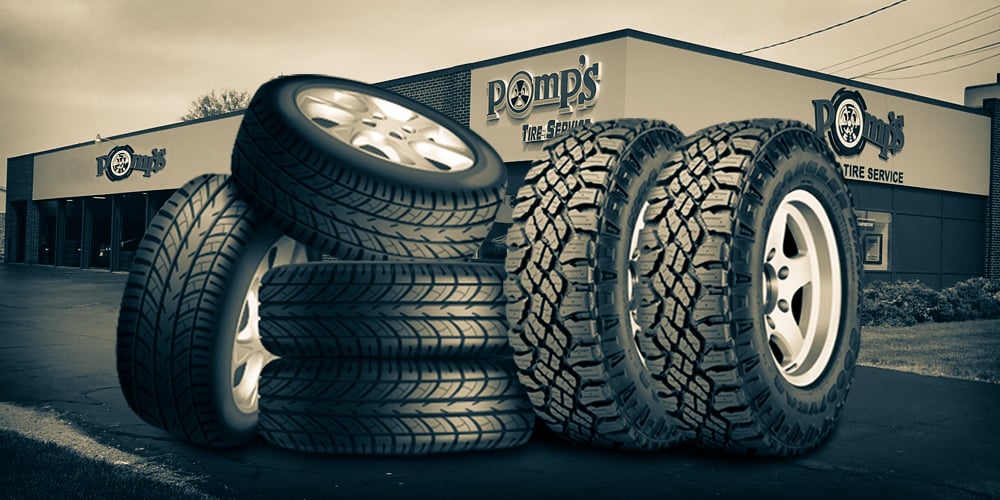Get Road-Ready with Specialist GMC Tires Service at Morris Tires
Get Road-Ready with Specialist GMC Tires Service at Morris Tires
Blog Article
Tire Solution: The Impact of Weather
When it comes to guaranteeing optimal performance and safety on the road, understanding the impact of climate condition on tire service is vital. From scorching warm to icy roads, each weather aspect can dramatically affect tire capability and total driving experience. By delving into the effects of differing weather on tires, chauffeurs can acquire useful insights that might improve their vehicle's efficiency and durability. In this discussion, we will certainly discover the complex relationship in between weather problems and tire service, clarifying the significance of weather-specific tire upkeep practices and factors to consider.
Warm and Tire Performance
When subjected to heats, tires experience modifications in performance that can considerably influence lorry safety and security and handling. The warmth produced from long term driving or heat problems causes the tire rubber to soften, resulting in decreased walk life and enhanced wear. As the rubber becomes softer, the tire's hold when traveling lessens, influencing braking ranges and total traction. In extreme instances, extreme warm can also trigger tire blowouts, presenting an extreme safety and security danger to the lorry and its residents.

Winter Impacts
Cold climate problems can have a considerable effect on tire performance and safety. As temperature levels drop, tire rubber can harden, leading to lowered traction on icy or snow-covered roadways. In cool climate, tires may additionally shed air stress extra swiftly, which can impact managing and gas efficiency. Furthermore, cool temperatures can cause tire sidewalls to stiffen, increasing the risk of damages from pits or various other road risks.
To minimize the effects of cold weather condition on tires, it is critical to frequently check tire stress and inflate them to the maker's suggested degrees. Utilizing winter months or all-season tires developed for winter conditions can also improve grip and grip on icy or snowy roadways. Correct tire upkeep, including regular examinations for wear and damages, ends up being a lot more essential throughout colder months to make certain optimal efficiency and safety and security.
Rainy Conditions Impact
During stormy problems, tire performance and safety can be significantly influenced by the wet roadway surface areas and minimized exposure. The tread pattern of tires plays an essential duty in preserving grip on wet roads. Tires with worn-out footsteps are more susceptible to hydroplaning, where a layer of water develops in between the tire and the road surface, leading to loss of grip. To combat this, vehicle drivers need to routinely check their tires for ample walk deepness and think about buying tires especially made for wet conditions.
Additionally, wet weather condition can additionally lower visibility, making it challenging for drivers to see the roadway in advance plainly (GMC Tire Service). In such conditions, it is important to readjust driving speeds as necessary and maintain a safe following range to enable sudden stops. Properly filled with air tires can additionally assist in preserving control on wet roadways by offering much better great site handling and grip
Snow and Tire Safety And Security
When driving in snowy problems, having the appropriate tires can make a considerable difference in safety and security and efficiency. Wintertime tires are designed with special rubber compounds and tread patterns to provide far better traction on snow and ice contrasted to all-season tires.

In addition, vehicle drivers should think about mounting tire chains in extreme snowy problems. Tire chains give added traction by gripping the snow and ice, boosting stability and control. It is important to comply with manufacturer guidelines when making use of and setting up tire chains to Get More Information prevent damages to the tires and car (GMC Tire Service). By choosing the ideal tires, preserving correct rising cost of living, and taking into consideration added traction help like tire chains, motorists can improve their security when browsing snow-covered roads.
Weather-Related Tire Upkeep
Weather-related tire maintenance incorporates a variety of techniques intended at making sure optimum tire function and long life in various weather situations. One key aspect of weather-related tire maintenance is tire stress law. Inspecting tire step routinely and changing tires when tread wear reaches a specific deepness is essential for maintaining grip and stability in adverse climate.
Final Thought
In final thought, weather condition conditions have a considerable influence on tire efficiency and security. From warmth affecting tire pressure and put on to chilly climate lowering traction, it is crucial to think about the weather when keeping and utilizing tires.
In this discussion, we will certainly explore basics the elaborate relationship in between weather condition conditions and tire service, dropping light on the relevance of weather-specific tire maintenance techniques and factors to consider.

Report this page